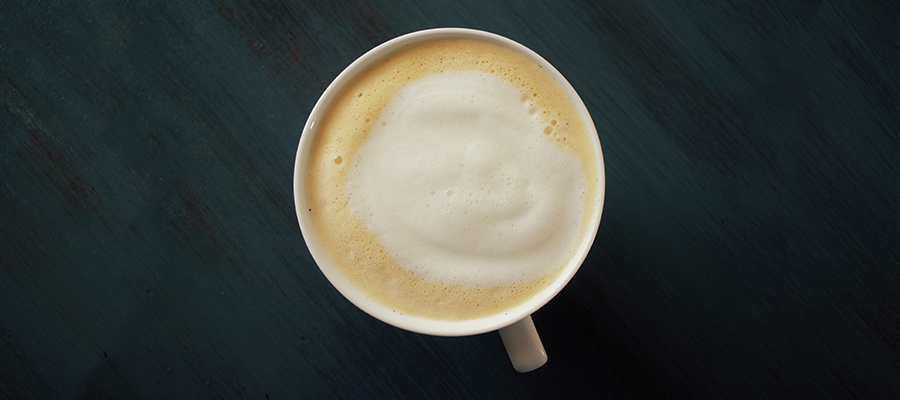There is nothing Americans like more than having a cup of coffee first thing in the morning or before starting work in the office. Some folks claim they can’t lift a finger without having a coffee in the morning.
However, the negative side effects of coffee dependence are convincing many people to search for a coffee replacement—an alternative that can offer the same taste and benefits that the morning Latte or Cappuccino provides.
In recent years, there has been plenty of healthy debate among experts about whether the drawbacks of drinking too much coffee outweigh its benefits. You will find conflicting reports and opinions, but one thing is for sure. More and more people are looking for a coffee replacement.
It is hard to put the cup down, and that’s why people are more interested in looking for coffee replacement instead of giving up their morning fix completely. People want a drink that still wakes you up, gets you going, and keeps you focused. We’re going to walk you through some common reasons that one should consider a coffee replacement.
1. Coffee Can Affect Your Sleep
The biggest advantage and drawback of coffee is that it keeps you awake! Drinking coffee late in the day can disturb your sleep at night and, ultimately, affect your sleep patterns. Also, coffee is a proven stimulant for the brain. Consistent use is bound to affect your sleep patterns and quality of sleep in the long run.
So, finding an alternative that improves the quality of sleep you get every night isn’t a wrong thing to look for.
2. Coffee Can Decrease Your Energy Levels
Yes, you have heard it right. Drinking too much coffee can lead to reduced energy and restlessness, exhaustion, and emotional weariness.
People drink coffee daily to boost energy levels and get active. But our body can become tolerant to coffee overtime, and it no longer produces the same effects it normally would. In such a case, you either have to drink more coffee or make it stronger— that can be detrimental to your health.
So, your routine of drinking coffee to feel more energetic can yield the opposite effect. That sucks.
3. Coffee is Highly Addictive
Needless to say, coffee is an addictive beverage that makes it difficult to rely on the body's natural source of energy. Obviously, you can’t compare it to substance abuse or illegal drugs, but it has profound withdrawal symptoms. Some common withdrawal symptoms of coffee include headaches, anxiety, fatigue, or nausea, etc.
And the research shows that many people continue drinking coffee just to avoid withdrawal symptoms.
When you think about that, it makes a lot of sense to start looking for a coffee replacement before you get addicted to it.
4. Coffee Stains on Teeth
Coffee can stimulate the growth of bacteria on your teeth if not cleaned properly, causing enamel erosion. It takes no more than a single cup of coffee to begin staining your teeth and making your teeth thin and brittle.
Drinking too much coffee, especially flavored coffee featuring all those fancy syrups contains much more sugar, which can cause tooth decay.
Regular brushing can help you avoid coffee stains on your teeth, but it is better to eliminate the risk altogether by finding a coffee replacement that doesn’t harm your teeth.
5. Jitters and Shaking
Jitters and shaking from coffee are not uncommon. Since caffeine is a stimulant meant to increase your brain activity, it can give you shake sand trembles if you drink too much coffee.
Consuming five or more cups of coffee is considered toxic, and you can suffer from trembling, involuntary shaking, and jittery sensations. It also depends on how much sugar you put in a cup.
If you’re using good quality ingredients and drinking coffee in moderation, you’ll probably get by without experiencing the shakes. Some people are more sensitive than others, and even a couple of cups bring on the jitters. If that sounds like you, you may want to consider a coffee alternative.
6. Coffee Can Affect Your Mood
Caffeine is a known stimulant that acts on your nervous system to make you feel energetic and active.
But it can only improve mental performance up to a limit. People who drink coffee very regularly can become consumed by it and become moody. If they don’t have coffee by first thing in the morning or when they roll into the office, they may become irritable and agitated.
Simply put, coffee can strongly influence the moods and emotions of coffee drinkers. That alone is convincing people to look for a coffee replacement.
7. Caffeine is Acidic
Coffee is considered as an acidic drink and comes in at around 5 PH. Even though it is less acidic than a beer or soda, when drunk in higher amounts, it can cause heartburn, imbalances in your gut flora, or indigestion.
8. Coffee Kills Appetite
The use of coffee as an appetite suppressant is well-known. It is frequently added in dietary supplements to help people kill their appetite and lose weight. So, you may not feel hungry for a while after drinking coffee.
Sometimes you may tend to skip breakfast and just go for the coffee— unlikely, but it happens. Developing such a habit where you start skipping regular meals with a cup or two of coffee can seriously affect your health.
9. Coffee Affects Your Blood Pressure
Caffeine increases the blood pressure of people consuming a lot of coffee. Even though the increase is for a short time, it can have serious consequences for anybody whose blood pressure is already a risk. High blood pressure, or hypertension, can have serious long-term health consequences if untreated by a doctor.
No wonder people with blood pressure issues are more active in searching for a better alternative to coffee.
10. Caffeine Can Contribute to Anxiety Levels
Coffee increases the amount of adrenaline released by the brain, and that is bad news for someone already having anxiety issues. If you are suffering from depression or stress, drinking too much coffee will further exacerbate your anxiety levels.
That reason alone shows why it would be a rational choice to start looking for a coffee replacement if you haven’t already.
11. Coffee Increase Blood Sugar Levels
After meals, your blood sugar level increases. But coffee reduces insulin sensitivity and makes it tougher for the body to bring down the blood sugar level. Research shows that drinking 350mg or less coffee daily is safe for most people.
Higher blood sugar levels pose serious health challenges, especially for people with diabetes. Those who are at risk of major diabetes complications like heart disease or nerve damage can’t afford to have coffee on the menu.
12. Coffee Boosts Heart Rate
Drinking coffee regularly in high doses, 400mg or more, raises the blood level of epinephrine, which speeds up the heart rate. Increased heart rate can lead to severe medical conditions such as cardiac arrhythmia or tachycardia and can prove to be fatal if not addressed on time.
Common Side Effects of Coffee
Aside from the above complications, consuming higher amounts of coffee can lead to moderate side effects such as:
- Over Excitement
- Insomnia
- Restlessness
- Gastrointestinal disturbances
- Nervousness
- Muscle twitching
- Flushed Face
- Periods of inexhaustibility
- Rambling speech
- Excessive urination
- Difficulty relaxing
Not everybody will be exposed to these side effects, but people with prior medical conditions are vulnerable to these unpleasant side effects of coffee.
What are the Best Alternatives to Coffee?
People who have ditched coffee have opted for all sorts of natural alternatives. This alternative is usually a common tea like green tea and black tea.
At MUD\WTR™, we think we have the best alternative to coffee available on the market. MUD\WTR is a coffee alternative consisting of organic ingredients lauded by cultures old and young for their health and performance benefits. With a fraction of the caffeine found in coffee, mud gives you natural energy, focus, and more without the jitters and crash.
As is listed right on the can, mud is proudly made with quality cacao, masala chai, turmeric, sea salt, cinnamon, Chaga, cordyceps, reishi, and lions’ mane. We’re sure that you won’t find a better alternative out there. Grab a 90 serving supply or go all-in with our fan-favorite starter kit.
To sum it all up, coffee does increase the alertness and energy levels of your body, but at the same time, it can lead to harmful side effects, particularly if you are drinking 400mg or more daily.
That’s why an increasing number of people are searching for a coffee replacement that can produce the same benefits coffee provides but without the health risks.
If you plan to replace that “coffee first” mentality, beware of withdrawal symptoms and avoid quitting it all at once. Rather gradually cut back the caffeine intake one day at a time. With a slow, gradual approach, in 3-4 weeks, you can become coffee-free and on your way to a healthier life!
Sources
Link 1 - https://medlineplus.gov/caffeine.html
Link 2 - https://www.cdc.gov/niosh/emres/longhourstraining/usingcaffeine.html
Link 3 - https://www.aarp.org/health/healthy-living/info-10-2013/coffee-for-health.html




